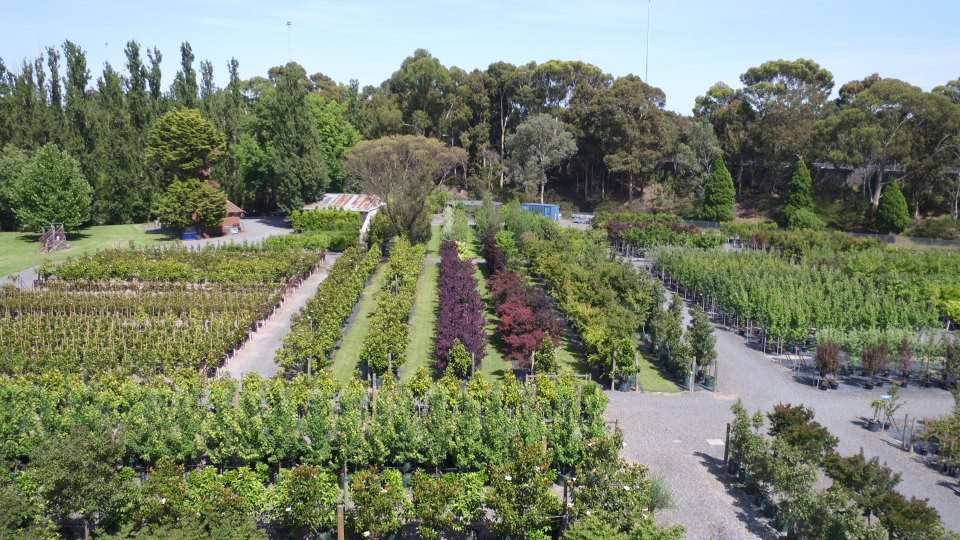NEWS
The Benefits of Buying from a Wholesale Nursery in Melbourne

Welcome to Kilby Tree Farm, your premier destination for wholesale nursery products in Melbourne. In this blog post, we will explore the numerous benefits of purchasing from a wholesale nursery and why Kilby Tree Farm stands out as a trusted supplier in the region. Whether you are a landscaping professional, a gardening enthusiast, or a business owner looking to enhance your outdoor spaces, our wholesale nursery offers a wide range of high-quality plants and exceptional service. Let’s delve into the advantages that come with buying from a wholesale nursery like Kilby Tree Farm.
Extensive Selection:
At Kilby Tree Farm, we take pride in our diverse inventory of plants, trees, and shrubs. Our wholesale nursery offers an extensive selection, providing you with a wide range of options to suit your specific landscaping or gardening needs. From ornamental plants to native species, we have a vast assortment of greenery that allows you to create stunning and personalized outdoor environments.
Competitive Pricing:
One of the primary advantages of purchasing from a wholesale nursery is the cost savings it offers. Kilby Tree Farm provides competitive pricing on all our products, ensuring that you receive excellent value for your investment. As a wholesale buyer, you can take advantage of bulk purchase discounts, allowing you to save significantly compared to retail prices. By buying directly from us, you eliminate the middleman, resulting in more affordable prices for your landscaping projects or business needs.
Quality Assurance:
When it comes to plants and trees, quality is paramount. At Kilby Tree Farm, we understand the importance of providing our customers with top-notch products. As a wholesale nursery, we meticulously nurture our plants, ensuring they are healthy, well-maintained, and ready to thrive in their new environments. Our commitment to quality ensures that you receive plants of the highest standards, contributing to the success of your landscaping projects or the appeal of your gardens.
Expert Guidance:
Our team at Kilby Tree Farm consists of experienced professionals who possess in-depth knowledge of horticulture and landscaping. As a wholesale nursery customer, you benefit from their expertise and guidance. Whether you need advice on plant selection, landscape design, or maintenance tips, our knowledgeable staff is always ready to assist you. We are dedicated to helping you make informed decisions and achieve your desired outcomes.
Convenient Ordering Process:
We understand that convenience is crucial in today’s fast-paced world. That’s why we have streamlined our ordering process to ensure a hassle-free experience for our wholesale customers. Through our website at, you can easily browse our extensive catalog, place your orders, and schedule delivery or pickup at your convenience. Our user-friendly interface and efficient logistics make ordering from our wholesale nursery a seamless process.
Trade Membership Benefits:
At Kilby Tree Farm, we also offer trade membership benefits to our valued customers. Trade members can enjoy exclusive perks, such as special discounts on bulk purchases and dedicated account managers who provide personalized assistance for gardening and landscaping projects. Our trade membership program rewards loyalty, ensuring that the more you invest with us, the higher the discount tiers you can unlock, with potential savings of up to 10%.
Conclusion:
Buying from a wholesale nursery, such as Kilby Tree Farm in Melbourne, offers numerous advantages for landscaping professionals, gardening enthusiasts, and business owners. With our extensive selection, competitive pricing, quality assurance, expert guidance, and convenient ordering process, we aim to exceed your expectations and help you achieve remarkable outdoor spaces. Visit our website today to explore our wholesale nursery offerings and experience the benefits firsthand. Partner
FAQs
What products does Kilby Tree Farm offer?
Kilby Tree Farm offers a wide range of wholesale nursery products, including plants, trees, and shrubs. We have an extensive selection to suit various landscaping and gardening needs.
How can I become a trade member?
To become a trade member and enjoy the benefits of our wholesale nursery, please fill out the digital application form on our website. We require businesses to have a direct link to gardening and landscaping/building and a registered and active ABN.
What are the benefits of buying from a wholesale nursery?
Buying from a wholesale nursery like Kilby Tree Farm offers several benefits, such as:
Competitive pricing: Wholesale nurseries provide cost savings through bulk purchase discounts, offering better prices compared to retail.
Extensive selection: Our wholesale nursery offers a diverse range of plants, trees, and shrubs, giving you more options for your landscaping projects.
Quality assurance: We take pride in nurturing high-quality plants, ensuring they are healthy and ready to thrive in their new environments.
Expert guidance: Our knowledgeable staff is available to provide guidance and assistance with plant selection, landscape design, and maintenance tips.
Convenient ordering process: With our user-friendly website, you can easily browse our catalog, place orders, and schedule delivery or pickup at your convenience.
Do you offer discounts for trade members?
Yes, as a trade member of Kilby Tree Farm, you can enjoy special discounts on bulk purchases. The more you spend, the higher the discount tiers, with potential savings of up to 10% [1].
How can I contact Kilby Tree Farm for support or additional information?
You can reach out to us through our contact page on the website. We have a dedicated team ready to assist you with any queries or concerns you may have.
Can I visit Kilby Tree Farm in person?
Yes, Kilby Tree Farm is open to visitors seven days a week. Our friendly staff will be happy to welcome you and provide on-site assistance.
Having completed my education in English, I’ve cultivated a successful career as a content writer. My tenure includes valued collaborations with distinguished professional organizations, reflecting my commitment to producing high-quality content.
Contact me on this mail: [email protected]










